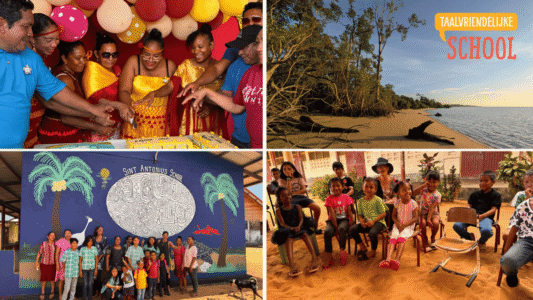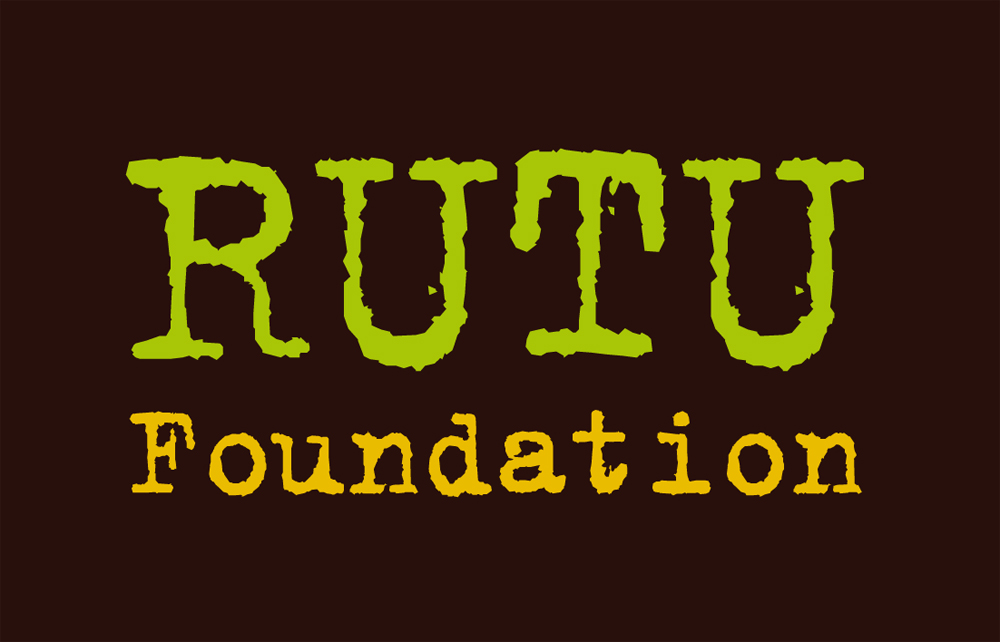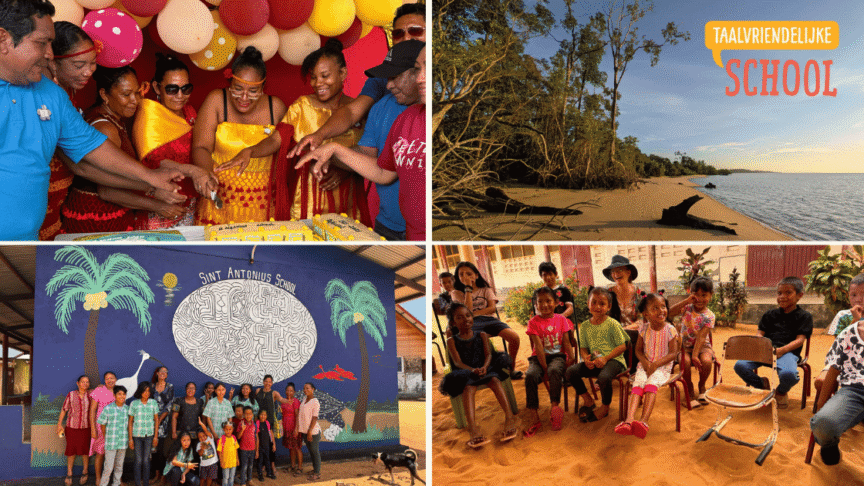
On April 30, 2025, the St. Antonius School in Galibi, located in the Indigenous Kari’na villages of Christiaankondre and Langamankondre, celebrated its 100th anniversary. This special milestone sparked a deepening of the collaboration between the school, the village leadership, and the Rutu Foundation, aimed at sustainably improving education in this remote community on the Marowijne River.
St. Antonius School is not only a cornerstone of local education—it is also a pioneer. In 2023, it became the very first Indigenous school to receive honorary membership in the international Language Friendly School network, in recognition of its longstanding commitment to multilingual and culturally rooted education.
The school faces significant challenges—limited electricity, weak internet access, and a curriculum that often fails to reflect the children’s linguistic and cultural reality. Dutch dominates the classroom, threatening the Kari’na language and traditional knowledge.
Our project focuses on:
- Integrating the Kari’na language and culture into daily lessons.
- Serving as a pilot for Indigenous and Maroon communities across Suriname.
- Raising awareness in both Suriname and the Netherlands about colonial legacies and Indigenous resilience.
Highlights of the visit
In May 2025, Ellen-Rose Kambel and Emmanuelle Le Pichon travelled to Galibi to participate in the 100 year celebration and to work together with Maggie Schmeitz on capacity building of the teachers.
- Centenary Celebration: A vibrant event with village leaders, students, alumni, and guests that honored the school’s pivotal role in education, locally and beyond.
- Teacher Workshop: Educators learned how to use multilingual mind maps for vocabulary development, supported by AI tools like ChatGPT and illustrated stories in both Kari’na and Dutch.
- Bilingual Resources: Work has started on a children’s dictionary, storybooks based on Kari’na traditions, and the relaunch of a bilingual math method—originally developed with Rutu in 2010.
- Community Storytelling: Elders shared stories about the village’s past and Indigenous land rights. Inspired students eagerly lined up to tell their own stories, which will be published as classroom materials.
- New Tools: Donated refurbished tablets now support teachers in lesson planning and engaging students through visuals and language apps, even with limited connectivity.
- Ongoing Support: With monthly coaching led by local expert Maggie Schmeitz, teachers are building confidence and skills in language-friendly, culturally grounded education.
This collaboration is more than a project—it’s a movement to reclaim language, dignity, and educational equity. As the first Indigenous Language Friendly School, Galibi is setting an example for other communities. Through the Language Friendly School network, we are sharing their journey with educators in the Netherlands and around the world, showing how Indigenous knowledge and modern tools can go hand in hand.

